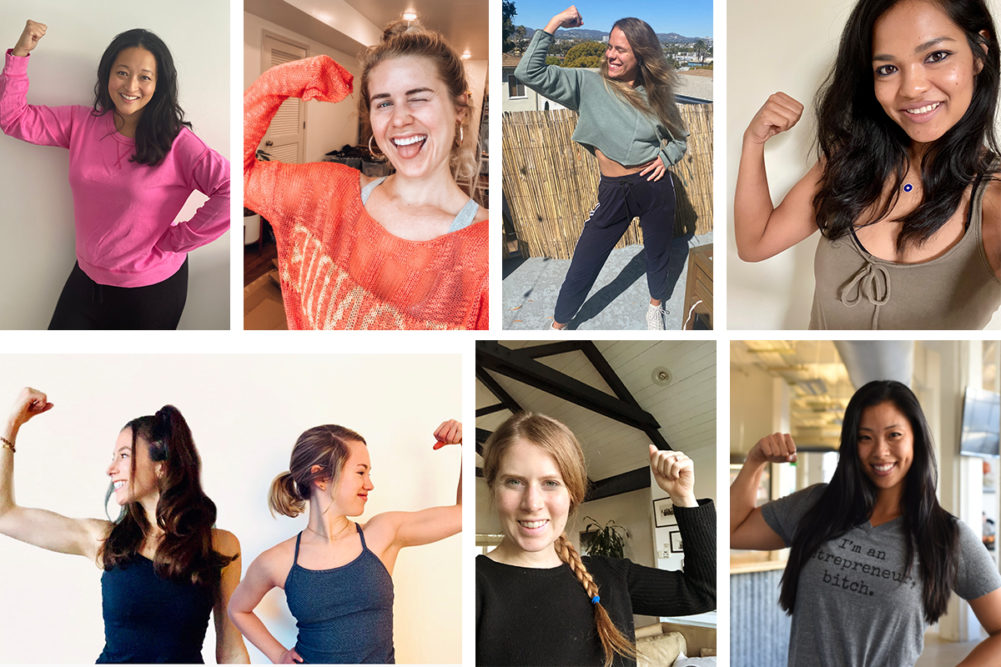KANSAS CITY — Female entrepreneurs in the food industry are hungry for equality. Women-led brands are collaborating to illuminate systemic challenges intensified by the pandemic.
“As a woman, we hear ‘no’ a lot more than our male counterparts, and it’s important to not let this deflate your confidence,” said Erica Liu Williams, founder and chief executive officer of Gr8nola, a brand of low-sugar, superfood-infused granola.
Ms. Williams convened a group of female-founded consumer products companies for a social media campaign and product giveaway for Women’s History Month. The #HungryForEquality partnership includes Siren Snacks, Tea Drops, Partake Foods, Naturally Clean Eats, Pop & Bottle, Repurpose, GoNanas, Pulp Pantry and Kween Foods.
At food and beverage manufacturing companies, women represent just 20% of top-level executives, according to consultancy McKinsey & Company. Its annual “Women in the workplace 2020” study showed the COVID-19 crisis has unraveled hard-fought progress toward gender equality in corporate America and is threatening to further stifle female advancement.
“With women making up 50% of the population, we should strive for women to make up at least 50% of our leaders, executives and entrepreneurs,” said Elizabeth Giannuzzi, co-founder and CEO of Siren Snacks, a brand of plant protein bites. “Our products are designed with the female consumer in mind, but unfortunately many retail buyers for our category (nutrition bars) are men who often don't resonate with our feminine branding or don’t understand why we need more female-centric products in their set. It's not a coincidence that we always have the best luck in sales meetings and presentations when a woman is the key decision maker.”
Women, and especially women of color, were more likely to have lost jobs during the pandemic. A Harvard Business Review analysis showed women’s jobs were nearly twice as vulnerable to the COVID-19 crisis than men’s jobs. Due to challenges arising as a result of the outbreak, including the burdens of housework and caregiving, women are 1.3 times more likely than men to considering leaving the workforce, according to McKinsey & Company.
For some women, the lopsided representation in leadership has fueled insecurity. Morgan Lerner and Annie Slabotsky, the founders of GoNanas, overcame “lots of doubt and judgment” in the early stages of their banana bread business.
“For so many years, my business partner, Annie, and I were viewed as just two young girls running a small bakery business as a hobby,” Ms. Lerner said. “Many didn’t take us or our idea seriously, especially with our upbeat and positive personalities.”
Just over 12% of decision-makers at US venture capital firms are women, according to PitchBook data. Ali Bonar, founder of Kween Foods, launched her line of granola butter following years of body image issues and disordered eating. Explaining her story to male investors often resulted in awkward reactions, she said.
“I could see them either glaze over or shift nervously in their seats as I started opening up about my struggles — while other female investors immediately understood and had similar journeys,” she said.
Last year marked a substantial decline in venture capital funding for female-led startups, according to Crunchbase data. In 2020, female founders received 2.3% of funding, down from an all-time high of 2.8% in 2019. The statistics become even grimmer for women of color, who receive less than a percent of venture capital funding each year.
“As a female founder of color, we are at a significant deficit when it comes to opportunity and funding,” said Denise Woodard, founder and CEO of Partake Foods, a brand of allergen-free cookies and baking mixes.
She noted the lack of diversity she encountered earlier in her career at a consumer packaged goods company as oftentimes “the only person of color and certainly the only female of color in the room,” and a feeling of not belonging that lingered as she launched her business.
“Though Partake has seen success, we've also seen rejection,” Ms. Woodard said. “When I was raising a seed round, I heard ‘no’ 86 times before hearing ‘yes.’ Having investors and retail partners that believe in me and what we're building has made all the difference. The fact that I've gotten here with the obstacles I've faced is empowering and something I'm proud to show my daughter. At the same time, the frustration of facing those challenges fills me with a sense of urgency to lift as I climb and give back as much as I can.”
More programs and resources are emerging that support female founders in the industry, said Kaitlin Mogentale, founder and CEO of Pulp Pantry. She cited Burt’s Bees Natural Launchpad and the Target Incubator as examples.
“Equality will allow women to focus on what they do best — deliver great products and great leadership,” Ms. Mogentale said. “Women create products that other women want — and diversity in the workplace leads to better products and more diverse perspectives.”
Many of the founders said they receive support, guidance and opportunities from fellow female entrepreneurs. Jash Mehta and Blair Hardy, the founders of Pop & Bottle, said they have felt like “the odd women out” in the male-dominated beverage category.
“In these moments, we find strength in knowing that we have the amazing support of other female founders — whether that is through knowledge sharing, celebrating each other’s successes, or working together to promote more diversity and inclusion in the industry,” Ms. Mehta said.





